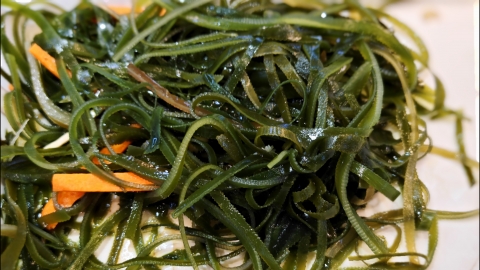What are the benefits of eating kelp in spring?
Eating kelp in spring can help supplement iodine, provide dietary fiber, assist in regulating metabolism, replenish minerals, and support intestinal health. Its rich nutritional profile suits the body's needs for springtime conditioning, making it ideal for regular consumption—just remember to eat it in moderation.
1. Supplement iodine: Kelp is a natural high-iodine food. Iodine is an essential component for synthesizing thyroid hormones. Consuming moderate amounts of kelp in spring helps maintain normal thyroid function and prevents metabolic issues caused by iodine deficiency.
2. Provide dietary fiber: Kelp is rich in soluble dietary fiber, which promotes intestinal motility and helps relieve constipation that may occur in spring due to reduced physical activity or a greasy diet. It also increases satiety, helping control food intake.

3. Assist in regulating metabolism: Components in kelp such as potassium alginate help regulate the body's water balance and reduce excess fluid retention. When combined with a light spring diet, it better supports the body’s metabolic processes.
4. Replenish minerals: Kelp is rich in minerals like calcium, potassium, and magnesium. As the body's metabolism speeds up in spring, demand for these minerals increases. Eating kelp can help compensate for insufficient mineral intake in daily diets and maintain stable bodily functions.
5. Support gut health: The dietary fiber and fucoidan in kelp nourish beneficial gut bacteria, helping maintain a balanced intestinal microbiome and reducing gastrointestinal discomfort that may arise from digestive imbalances in spring.
Before consumption, kelp should be thoroughly soaked in clean water to remove surface impurities and some of its salt content. Avoid overcooking to prevent nutrient loss. Do not consume excessive amounts at one time—especially individuals with cold spleen and stomach deficiencies should limit intake and consider pairing kelp with ginger or garlic to neutralize its cooling properties.




